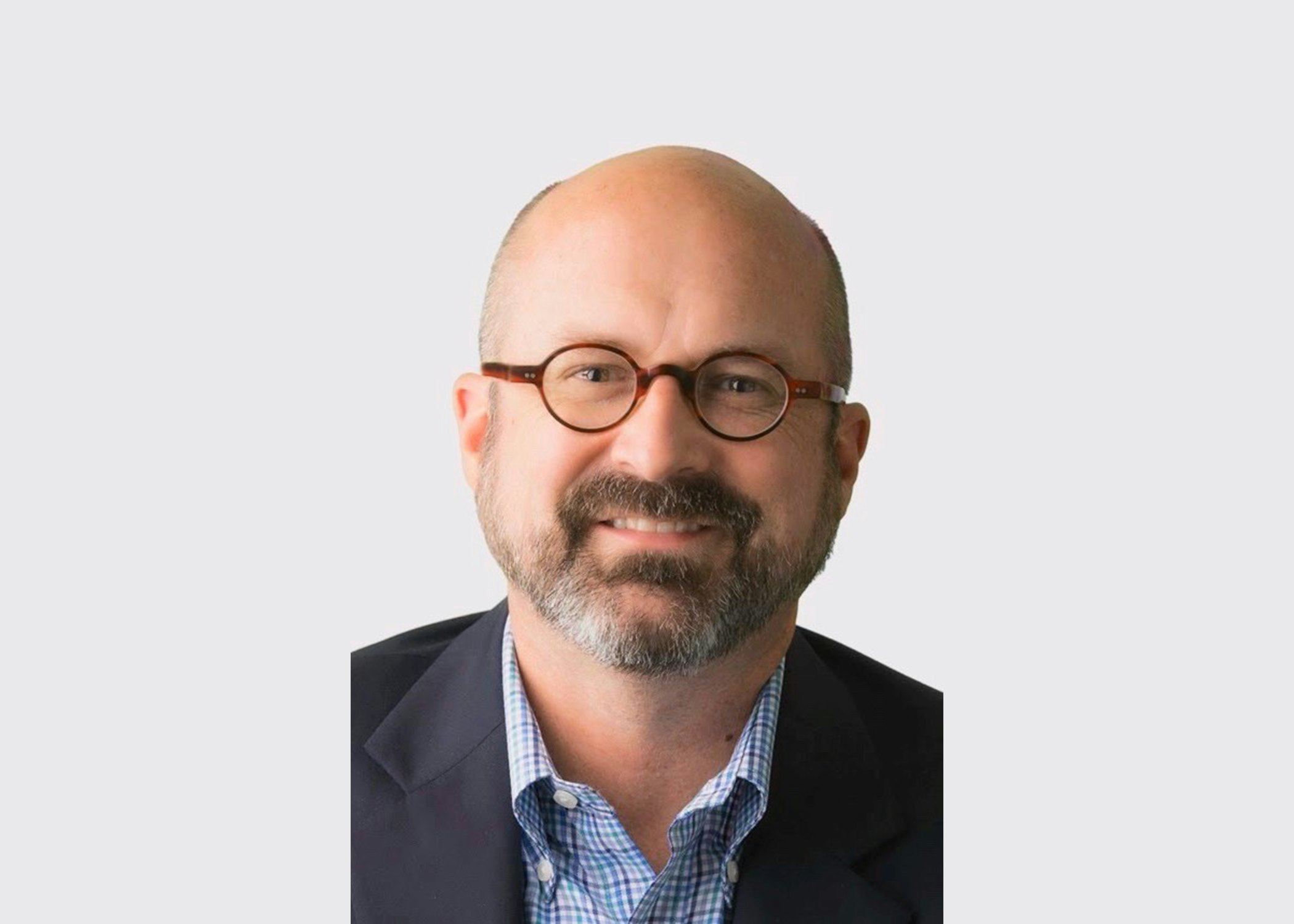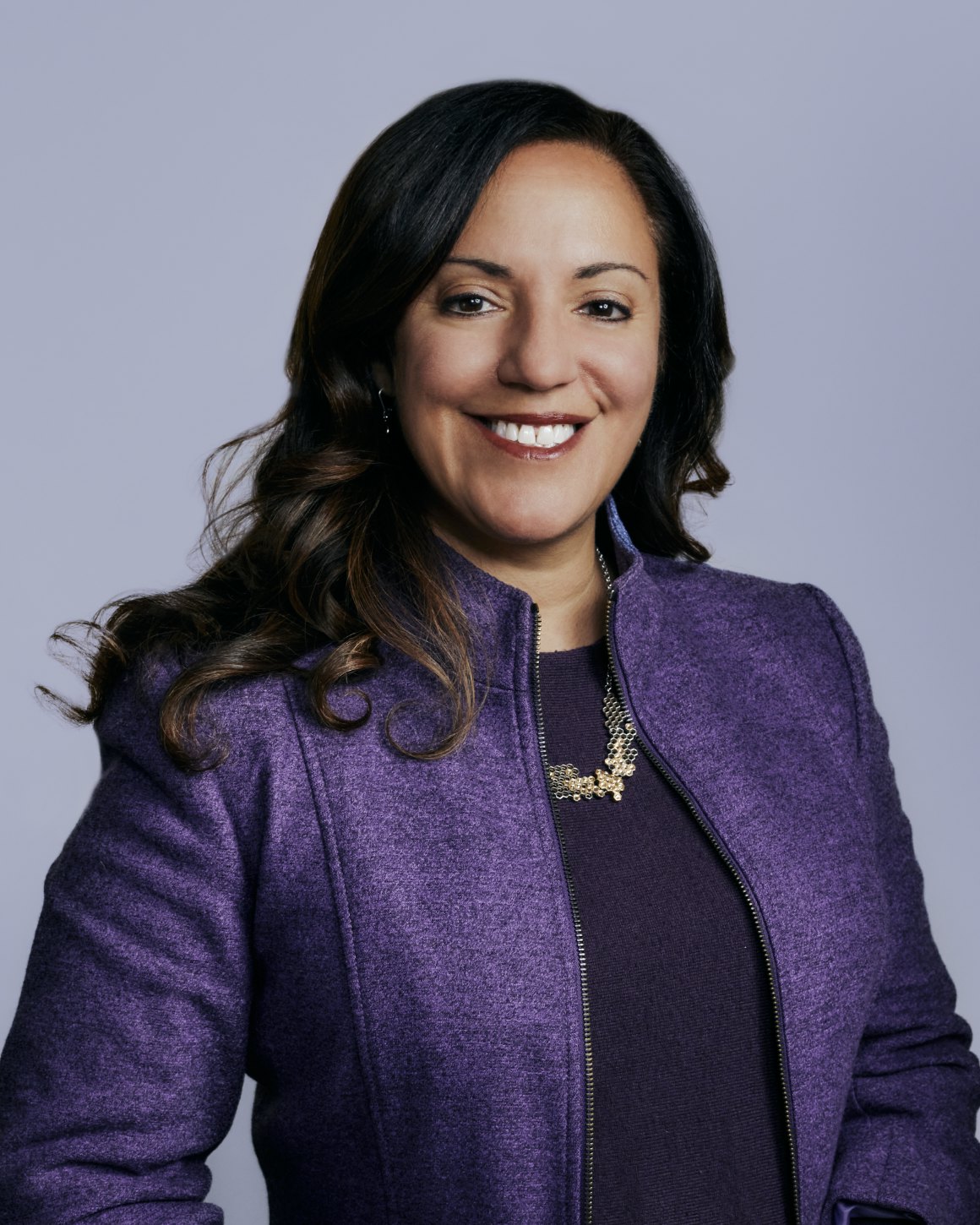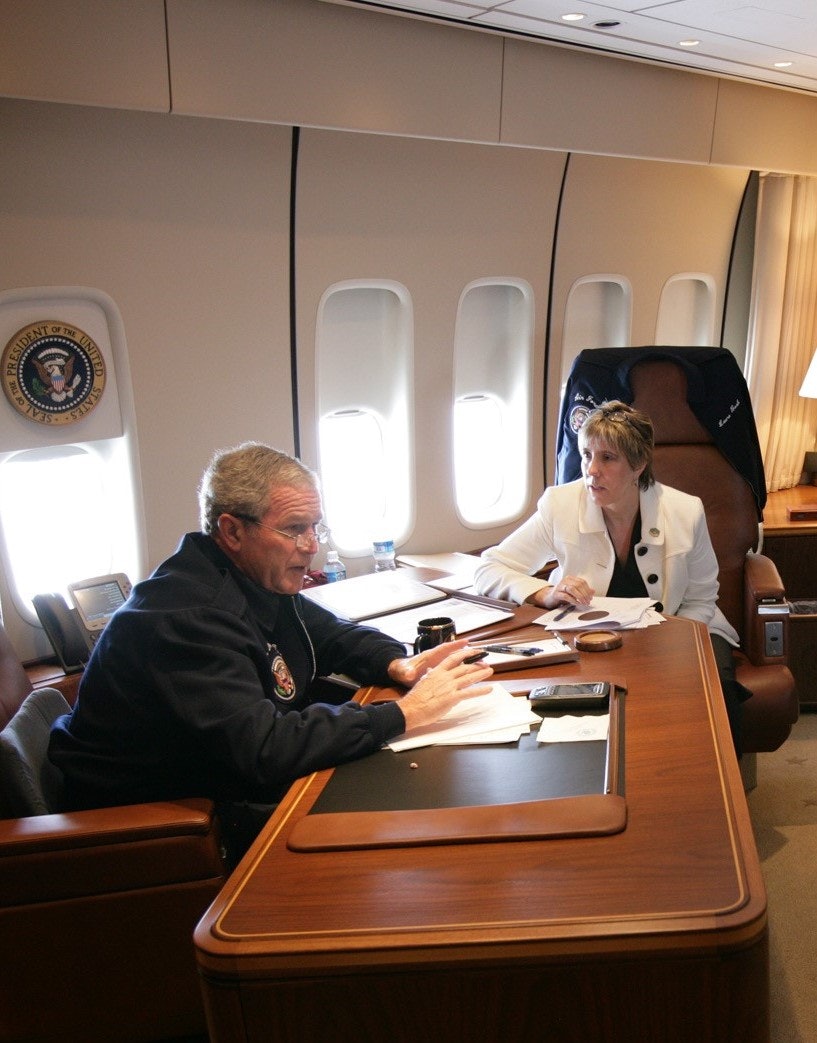At the annual Bush Center Forum on Leadership last week, Sec. James Baker was presented with the George W. Bush Medal for Distinguished Leadership. Following the presentation of the medal, Bush Institute Executive Director Holly Kuzmich sat down with Sec. Baker. For this month’s “Five Questions With…” feature, we’re honored to offer excerpts of their conversation, slightly edited for brevity and clarity.
At the annual Bush Center Forum on Leadership last week, Sec. James Baker was presented with the George W. Bush Medal for Distinguished Leadership. In his introduction, President Bush called Sec. Baker “one of America’s most outstanding public servants – ever.” Following the presentation of the medal, Bush Institute Executive Director Holly Kuzmich sat down with Sec. Baker. For this month’s “Five Questions With…” feature, we’re honored to offer excerpts of their conversation, slightly edited for brevity and clarity.
Q: You ran five presidential campaigns, you were White House Chief of Staff twice, you served as Secretary of the Treasury, and then Secretary of State. How did you approach all those leadership roles? And how do you think you gained the reputation as a very skilled operator?
A: Mostly, I think it’s common sense. I know what the fancy definitions of leadership are. James MacGregor Burns says, “it’s a commitment to values and the perseverance to fight for those values.” To me, it’s separate in that it’s knowing what to do, and doing it. But the doing it is what’s really difficult. And that would be my definition of leadership. And I was very fortunate to work for four wonderful people of great integrity and character: Gerry Ford, Ronald Reagan, George H.W. Bush and George W. Bush. So, I had the odds stacked in my favor, because I had wonderful presidents for whom I worked.
Q: You also said that the point of holding power is to get things done and accomplish things. And that was the way you went about your work. That sometimes seems far from what we see today. What are your reflections on that approach? And is it viable today?
I think it will be viable again. It has not been viable over last couple of years, maybe, or few years. But when I went to Washington more than 30-some-odd years ago, everybody went up there whether you were Republican or Democrat to get the people’s business done. That doesn’t happen anymore. We don’t get the people’s business done. But when I first started with Gerry Ford, we worked across the aisle very effortlessly, and Democrats felt the same way. Same thing with Ronald Reagan. Everybody thought that Ronald Reagan was a huge ideologue, a very hardline conservative, but he wasn’t. He was a pragmatist. He wanted to get things done. He and George H.W. Bush, and our 43rd President, all understood that we judge our presidents on the basis of what they get accomplished. And so, getting things done is a very important part, I think, of public service.
You know, George H.W. Bush was my best friend for 60 years. That’s a long time. And we were extraordinarily close. We won tennis tournaments together, we did a lot of stuff together. And I ran all of his campaigns. So, as Secretary of State, I was in a position where nobody was going to get between me and my president. But I never will forget when we started, he was just an asterisk in the polls. He had not held an important public office. He was an ambassador. But in the Republican primary, saying you’re an ambassador didn’t cut a lot of ice. And I remember, George would go around, saying, “my father” – who was who was a wonderful senator, by the way – “my father inculcated in me, a love of public service.” I said, George, don’t say inculcate. It sounds like a venereal disease. And he finally quit it. Forty-three is a Texan. Forty-three was raised here, 41 was not. So, I was working for a Yankee – a really good Yankee, but a Yankee.
Q: President Bush obviously worked on his dad’s campaign. Talk a little bit about that.
He was the enforcer. It was good for me when he came over. First of all, he took care of Lee Atwater, who was a nervous guy. And when he heard that I was going to come back, resign as Treasury Secretary to come over and run the campaign, he was highly nervous. And it was really good that – at that time, we called him “W” – the 43rd President of the United States came over. He was sort of in charge of the care and feeding of the campaign manager. Lee was a good political talent. He was very good, but he was nervous about his position. And then, whenever there was anything tough that needed to be done, that 41 didn’t want to do, and that I couldn’t do, 43 did it when he was in the campaign. He was very good – a beautiful hatchet man.
Q: Let’s talk a little bit about foreign policy. You were involved in ending the Cold War 30 years ago. And here we are today, with a new one with Russia invading Ukraine. What’s your perspective on what’s happened over those 30 years and where do we go from here?
People forget (that) for 15 years after the implosion of the Soviet Union, which happened in ‘91, the United States and the West had a really good relationship with the Soviet Union first, and then with Russia, under both Yeltsin and Putin – (for) 10 years under Yeltsin and five years under Putin, we had good relations. And then I think Putin got in domestic political trouble. And he needed a whipping boy, and the whipping boy was the United States and NATO. It started after about five years of Russia working with us, even associate membership in NATO, and all that. One of the most important accomplishments, in my view, of (41’s) presidency, was that he understood not to dance on the ruins of the Berlin Wall. He got a lot of grief from the country, and the political people, particularly writers and so forth, for not being more emotional about the collapse of communism. But he knew that we still had a lot of things to do with Gorbachev and his foreign minister Eduard Shevardnadze, and he just wasn’t going to dance on the ruins of the wall. He was knowledgeable enough to know that.
I had an event in Washington two weeks ago and had a good visit with Tony Blinken, whom I like a lot. I think he could project strength a bit more, but they have done a pretty good job of walking the fine line between helping Ukraine and not triggering a broader conflict. They’ve got to be careful about how they do that. They may have been a little bit over careful. Finally, now it looks like we’re going to have another $800 billion lethal equipment assistance package. We need to provide the Ukrainians with the means necessary to defend themselves, but we don’t need another land war way across the ocean. And so, I think they’re doing a reasonably good job on that. I think we’ve been very slow. The Europeans, believe it or not, are leading. And that never happened when we were there. I’m sure it didn’t happen when 43 was there.
Q: I have to ask about the recount. You were sent to Florida in 2000. How’d you approach that task when you showed up in Tallahassee, Florida? And talk about what you saw in President Bush 43’s leadership?
When I got in Tallahassee, we didn’t have any big people, we didn’t have any troops on the ground. We had six Republican lawyers at the Florida Republican Party headquarters. That was it. I tell people that I formed the best and biggest law firm in the United States over those 34 days. We got good people from a lot of places. And we got really strong support from the governor and from Cheney as the Vice Presidential nominee. And, we were fortunate enough to win. I used to walk down the street and people would come up to me and say, “thank you for what you’ve done for the country.” I’d say, that’s very nice of you. Thank you. I was the last Cold War Secretary of State. “No, no. I’m talking about what you did in Florida.” I got a lot of that.
I’ve never known anybody that brought the country together in a bigger or better way than he did in the aftermath of 9/11. That’s leadership. His efforts for justice, equality is leadership, the Millennium Challenge, the No Child Left Behind. All of that are great examples of leadership. I also think that 43 has handled his post presidency perfectly. You don’t see him out there as a talking head or criticizing his former opposite. That’s, that’s really the best way for a former president, my view, and he’s done a superlative job of that. And look at the work you’re doing here. For the for the less fortunate in Africa. Leadership is nothing more than knowing what to do and doing it. And that’s 43. There’s also his Daddy. They both knew what to do. And 43 is excellent at the second part of that, which is doing it, that’s the hard part.
BONUS QUESTION: I want to end on it on a fun question and know a little bit more about football games between the Baker boys and the Bush boys. What were those like?
Some people used to say that W was an in-your-face kind of guy. Well, let me tell you something. On the gridiron on Green Tree Road at the end, just in front of the bayou where the Bush boys would play the Baker boys on Thanksgiving in the Turkey Bowl, he was the star of the game. He was he was the toughest guy out there, too.





























